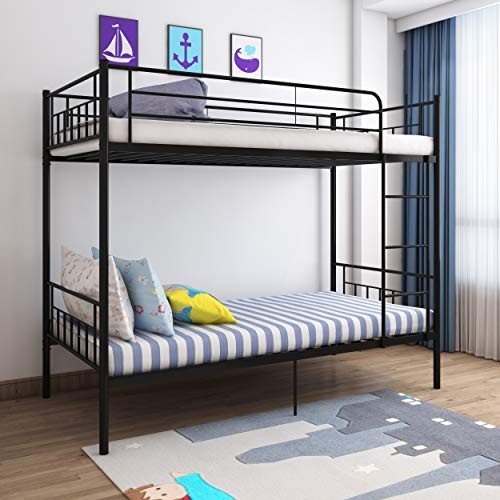What You Need To Do On This Bunk Beds Sale
Bunk Beds Sale: A Comprehensive Guide to Choosing the Right Bunk Bed for Your Home
Bunk beds have actually long been a staple in kids's bed rooms, using a combination of space-saving performance and enjoyable. Whether accommodating brother or sisters, pals on sleepovers, or just maximizing a playroom, bunk beds have ended up being an essential element in contemporary household homes. As sales on bunk beds increase, it becomes progressively vital for consumers to make educated choices when acquiring one. This article will cover the basics of purchasing a bunk bed, from types to safety features, in addition to ideas for preserving the integrity of your financial investment.
Types of Bunk Beds
When thinking about a bunk bed sale, it's important to comprehend the various designs available on the marketplace. Below are the most typical types:
Traditional Bunk Beds: These include two beds stacked one above the other, sharing a single frame. They are often the most economical choice.
L-Shaped Bunk Beds: This style includes one bed positioned vertically and another horizontally. This arrangement creates additional space below the upper bed, which can be used for storage or a play location.
Lofted Beds: Similar to standard bunk beds but with no lower bed. Rather, the space below can be made use of for a desk, play area, or additional storage.
Triple Bunk Beds: For families with a larger variety of kids or frequent slumber parties, triple bunk beds offer 3 sleeping locations in a space-efficient style.
Futon Bunk Beds: These designs combine bunk beds and futon sofas. The bottom area converts into a separate seating area, boosting performance.
Convertible Bunk Beds: These beds can be separated into two individual beds, making them flexible as children's requirements change with time.
Table 1: Comparison of Bunk Bed Types
Type
Description
Space Efficiency
Additional Features
Traditional Bunk Bed
Two beds stacked vertically
High
Easiest style
L-Shaped Bunk Bed
One vertical and one horizontal bed
Moderate
Play or storage space
Lofted Bed
Raised bed with open space below
High
Work/play area
Triple Bunk Bed
3 stacked beds
Really High
Accommodates more users
Futon Bunk Bed
Bunk bed with a convertible futon
High
Multi-functional
Convertible Bunk Bed
Can be divided into two separate beds
Moderate
Flexibility & & longevity
Safety Features to Consider
Safety is critical when purchasing a bunk bed. Below are crucial security functions to try to find:
Guardrails: Adequate guardrails need to be present on both sides of the upper bunk to avoid falls. They should be at least 5 inches higher than the mattress.
Ladder Design: Look for strong, large ladders with slip-resistant rungs. Make sure that the angle is not too steep for simple access.
Stability: Ensure the bed is built with strong products, such as strong wood or durable metal. The bed should not wobble when in usage.
Weight Limit: Check the weight capacity of the bunk bed to guarantee it can accommodate the desired users safely.
Material Safety: If possible, choose beds made from non-toxic materials or those fulfilling security requirements for kids's furnishings.
Table 2: Essential Safety Features
Feature
Description
Importance
Guardrails
Sides of upper bed to prevent falls
Important for child safety
Ladder Design
Strong, slip-resistant rungs
Help safe and simple gain access to
Stability
Develop quality to avoid wobbling
Guarantees safety and durability
Weight Limit
Optimum weight capacity
Prevents mishaps
Material Safety
Non-toxic, safe materials
Safeguards children's health
Upkeep Tips for Bunk Beds
To extend the life of your bunk bed and make sure continuous security, consider the following maintenance pointers:
Regular Inspections: Periodically inspect the structure for loose screws, bolts, or any signs of wear. Tighten up fasteners as required.
Tidy Periodically: Dust and tidy the surfaces frequently. Use suitable cleaners that will not harm the surface.
Check Weight Limits: Be mindful of weight limits, especially with older children or adults who may want to utilize the upper bunk.
Avoid Climbing on Guardrails: Educate kids not to use guardrails for climbing up or playing to lower the danger of mishaps.
Frequently Asked Questions (FAQs)
Q1: What is the age limit for children to securely utilize bunk beds?A: While it differs by the manufacturer, lots of suggest that children under 6 must not oversleep the upper bunk due to security concerns.
Q2: How can moms and dads prevent risky climbing?A: Setting clear rules about bunk bed usage and supervising children can help. Additionally, using a bed tent can discourage climbing while producing an enjoyable sleep environment.
Q3: What should I consider when embellishing a space with bunk beds?A: Ensure there suffices space around the bunk bed for safe motion, and utilize the decor to develop customized spaces for each kid.
Q4: Is a lofted bed appropriate for older kids?A: Yes, lofted beds can be suitable for older children as long as they meet security requirements and the child is accountable enough to utilize them safely.
Bunk beds serve a practical function while adding a component of enjoyable to a kid's bedroom. As Bunk Bed rosemaryosofsky.top of bunk beds continue to increase, cautious factor to consider of types, safety features, and maintenance practices is important for parents and caregivers. By understanding these crucial aspects, families can find the perfect bunk bed for their home, guaranteeing both functionality and security for several years to come. Whether it's for brother or sisters sharing a space or producing a relaxing slumber party space, a well-chosen bunk bed can provide delight and practicality, making it a deserving financial investment.
